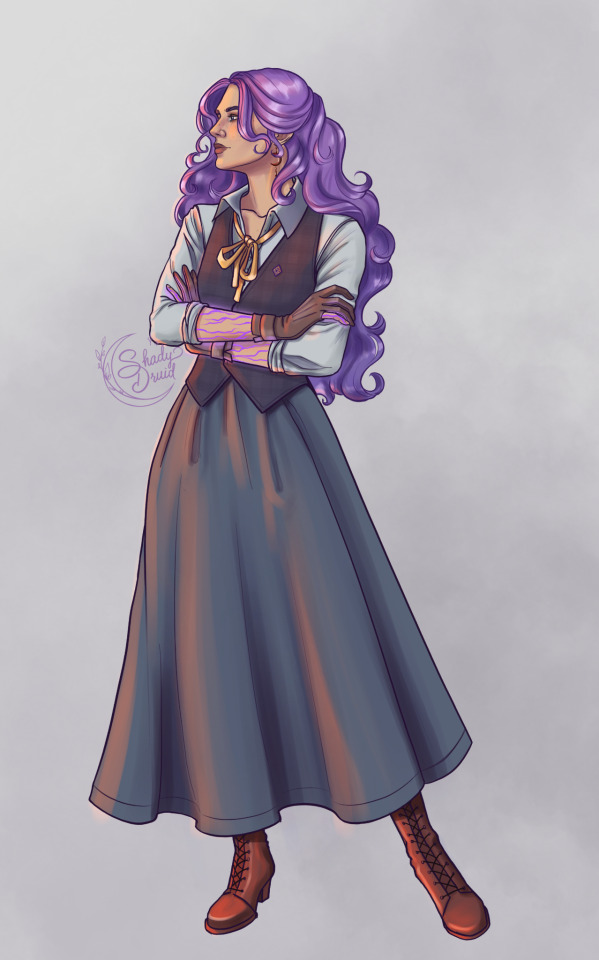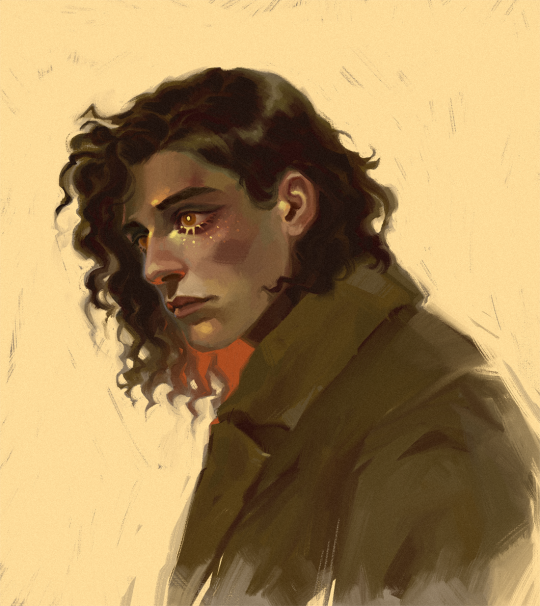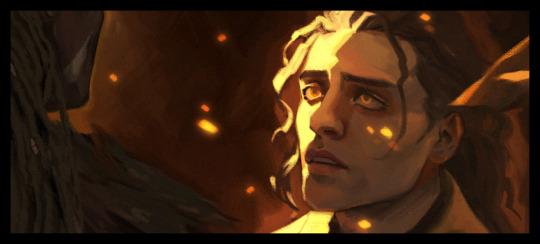#dark academia critical
Explore tagged Tumblr posts
Text
Well,,, I had my suspicions but, finally I am certain that the aesthetic of Dark Academia is the aesthetic of: racism,

Let’s do some probing here. A lot of people learn another language at school. Why is French “classier” than another language, for example: Spanish? Mandarin? We live in an era where art and history and philosophy are more accessible to working class than ever before, so why is it phrased like nobody studies them or cares about them anymore? How come the dancing we have in the 21st century isn’t “elegant?” What is the “aesthetic” of old money compared to new money? What was finishing school about finishing? What was it securing?
White supremacy. You’re yearning for a time when Mother Britannia ruled the fucking waves.
I will add that the aesthetic is clearly one of owning books and never reading them or reading about them because (I’m thumping my hands on my desk) they didn’t go to fucking finishing school in Pride and Prejudice! They were fucking poor!! That’s the point!! Lady Catherine doesn’t want Darcy to marry Elizabeth because her family is Not Our Kind!! They do not have the class signifiers of speaking French or knowing Etiquette, because look at her mother! Look at the mud on Elizabeth’s hem!
#the only part of academia these kids are ready for is the systematic discrimination#the aesthetic of aesthetic bloggers#dark academia critical#:))) 🔪
6 notes
·
View notes
Text
my biggest issue with dark academia is how many people accept a certain aesthetic as being a sign of education or of being smart. like it's not even about the inherent classism, occidentalism and racism of the whole thing, it's just how fucking stupid is to be like "liking basic western literature is incompatible with wearing a hoodie"
4 notes
·
View notes
Text
wizards are predisposed to evil bc that's just what academia does to you
#is this dark academia#did i loop back to dark academia#anyways sorry to anyone following my sideblog rn. yes this is about her#critical role#blumendrei
21K notes
·
View notes
Text

🌈
#art#poetry#words#rhetoric#dark academia#web weaving#light academia#philosophy tumblr#love#language#critical role
528 notes
·
View notes
Text


Bells Hells x Candela Obscura 🖤 💜 Finished Laudna and Imogen together 💞Which outfit do you like more?
#critical role#critical role fanart#critical role spoilers#bells hells#critical role campaign 3#critical role art#artists on tumblr#cr imogen#critical role imogen#critical role laudna#laudna x imogen#imogen x laudna#imodna#laudnogen#cr laudna#laudna#candela obscura fanart#candela obscura#dark acadamia aesthetic#dark academia
4K notes
·
View notes
Text
Tips for Critical Reading

You'll find many ways to read and understand a text, but keeping a journal as you read is one of the best ways of exploring a piece of writing. By integrating reading and writing, you can interact with the work more fully.
Begin each new novel, play or poem without predetermined bias. If you decide in advance that all good art uses realistic settings and promotes your personal moral values, you close out the possibility of new experiences. You do not have to, nor should you, enjoy every work of literature that you read, but you should be willing to recognize that the imagination is limitless.
Read slowly. This suggestion can't be stressed enough. If you roller-skate through an art museum you won't see the paintings.
Read with pen in hand. Underline key phrases, speeches by major figures, or important statements by the narrator. But don't limit yourself. Underline or highlight anything that seems important or striking. Take notes on ideas or questions (don't trust your memory). Write in the margins. Keep a list of the characters and/or major events on the inside of the front cover. Circle words used in special ways or repeated in significant patterns. Look up words that you don't know or words you think you know but seem to have a special weight or usage.
Look for those qualities that professional writers look for in real life: conflict, contrast, contradiction, and characterization.
Look for rhythm, repetition, and pattern. Successful works of literature incorporate such structural devices in the language, dialogue, plot, characterization, and elsewhere. Pattern is form, and form is the shaping the artist gives to his or her experience. If you can identify the pattern and relate it to the content, you'll be on your way to insight.
Ask silent questions of the material as you read. Don't read passively, waiting to be told the "meaning." Most authors will seldom pronounce a moral. Even if they do, a work of literature is always more than its theme. Use the questions devised by reporters: Who, What, When, Where. Why and How may take more study—such questions probe the inner levels of a text.
Keep a reading journal. Record your first impressions, explore relationships, ask questions, write down quotations, and copy whole passages that are difficult or aesthetically pleasing.
The Reading Journal
Christopher Thaiss in Write to the Limit (Chicago: Holt, 1991) notes that the word journal comes from the French word for day, which is jour.
The word indicates that a journal is kept daily.
Thaiss also suggests that journals are kept for many different reasons: to record events, to keep an ongoing public record, to record feelings, to make close observations for scientific purposes and, finally, to explore emotions, memories and images in order to think and learn about any subject.
Don't feel overwhelmed. Just relax; notice and feel things.
Associate ideas with other subjects, objects or feelings.
Try the following 3 steps:
First, write what you see in the text at the surface level.
Next, write what you feel about what you see.
Finally, write down what you think it means or why you think it is important.
Source ⚜ More: Writing Notes & References
#studyblr#writeblr#critical reading#dark academia#light academia#langblr#literature#writers on tumblr#writing prompt#poetry#poets on tumblr#spilled ink#reading#booklr#books#journaling#writing reference#on writing#writing tips#study tips#writing advice#andre derain#expressionism#art#writing resources
135 notes
·
View notes
Text
Y'all wanna know about a gender-non-conforming knight from 13th century France? No? That's okay- I'm fine with talking to myself.
I'm obsessed with gender performativity in early medieval texts- so obviously I had to know everything about Le Roman De Silence.
To preface-
So, long before there was the Marvel Cinematic Universe- there was the interconnected works of the Arthurian Legends. The original superheroes- King Arthur, Merlin, Morganna le Fey, and the rest of the cast. However, one of the lesser known (only arguably canonical) interconnected texts of the Arthurian legend hails from France. People argue over whether or not to include these texts as part of the cannon of King Arthur because it's technically french- and the french-english divide between characterization of all the main players of Arthur's court is remarkably different. Much research on this suggests the discrepancy of characterization is largely due to distance between where the stories originate, and sociopolitical tensions between the French and the English. Either people were too far apart to share stories- thus too far apart to keep characterization uniform, or they fucking hated each other enough to mess up the characterization on purpose. For example, many of the French portrayals of King Arthur paint him to be a rather terrible person, where English portrayals are generally more kind to him.
All that aside- many people will disagree that Le Roman de Silence should even be part of the Arthurian legend canon anyway- because it only mentions Merlin at the end of the poem and because it's a super french poem.
The main storyline is about this character named Silence. From the Old French Poem- Le Roman de Silence.
Gender? No- Never heard of it.
The latter half of the story in this poem is predicated on a complex mediation of Nature vs Nurture. What happens is that a baby is born into a wealthy family, and for sociopolitical reasons, the family decides to raise the girl baby as a boy. They name this child "silence." Silence grows up with full access to an education, as was typical for the boy children of aristocratic medieval families- this education becomes important later as Silence wrestle with where they fit into the larger social structure after maturing into adulthood. Essentially, they find the idea of marriage too boring and would like to be a Knight or Explorer instead. (I love them.) Anyway, it's fascinating to me that the conceptual ideas of nature and nurture are personified into being something like "deities" which are overseeing the growth of Silence through the ages- and so we get these deities commentary.
Silence wants to be a knight- so Nurture brags about being right that gender is more performative than it is biological. Then, later Silence grows up to be remarkably "pretty" and according to the deity of Nature- they brag about being right that biology and gender are intrinsically tied. It's such a thought-provoking mediation on gender as either performance or pure biology that I forget it was written in the 13th century- long before Freud or Lacan or any of the others who became hyper fixated on human presumption of gender as either a social category or a biological necessity.
I argued in a paper, once, that the narrative itself does actually finally end on the note that Gender is a performance, and it is tied into social roles only so the ruling class can have control of the population. That is why the stories ending shifts into horror-genre-esque of Silence marrying into the upper-ruling class.
I also have a strong urge to write a Fanfiction of Silence as a knight- who does not meet a sad fate but rather lives happily as a knight and eventually marries a princess. Okay- Okay? fine I said it. I said it-
Social pressure to marry?
The story takes a dark turn, however- when the King demands Silence to reveal themselves in front of the court. Obviously, even the author of the story was aware that misogynistic social standards would not allow for people to ever really be free of gender stereotypes and roles. So, Silence is then forced out of the adventurous lifestyle of a knight and into a marriage. Also, this is the place in the story where Merlin makes an appearance (I have a theory that Merlin is representative of the devil, and the author really hated that all AFAB people were forced into marriage back in 1200's. So that's why the devil shows up when all the bad shit is happening to Silence).
Inevitability and dismay-
What I find particularly interesting about this poem is the fact that the end, as Silence is forced into marriage and back into "proper" social roles for their assumed biological characteristics, is the fact that it is written like an early attempt at gothic horror!
So, one of the stipulations for something being a "gothic horror" is 1.) old, archaic, twisted buildings. (this blog is indeed named after my fixation with gothic horror elements, it's interplay relation to social reform, as its emphasis on decay as the tonal necessity for social indemnification). Anyway, the other most important aspect of gothic horror- is an overwhelming sense of desolation, isolation, and loneliness.
Sure, Silence is forced into marriage- but even with the forthright writing style of the author, we, as readers, are struck by Silence's loneliness. Thus, the "happily ever after" part of the storyline wherein the characters get married, as it traditional to chivalric romance, is recriminated against in subtext. Now, we have a moment in which the "happily ever after" is a creation of horror rather than peace.
Ending the narrative with marriage as equivalent to a loss of freedom and a sense of evermore-present loneliness, cumulating in the edifice of horror-struck fear in Silence at their own new future, is a remarkably bold social statement coming from a 13th century author.
I just think it's a really interesting text on the thematic points of negotiating Gender identity, in broader terms of performance and social roles, as much as it is a critique on the total social control that the monarchy held over the people of 13th century France.
Edit: I need to add that Silence themselves consistently rejects the idea that they are AFAB and instead only ever refers to themselves as "Silence" or "the knight"
#le roman de silence#medieval literature#13th century#manuscript#nature vs nurture#traditional gender roles#gender roles#france#french literature#french poetry#classic literature#academia#dark academia#gothic horror#marvel cinematic universe#king arthur#merlin#arthurian legend#arthurian mythology#arthurian literature#knight#medieval knight#gender#agender#nonbinary#chivalry#romantic literature#literary criticism#literary theory#poetry
277 notes
·
View notes
Text

Missing my Doctor.
#Doctor Wistan Salomé#features of course based on#Oscar Isaac#aasimar#articifier#my oc#wildemount#d&d#dungeons & dragons#dnd 5e#dungeonsanddragons#my character#my art#dungeons and dragons#dnd#critical role#dark academia#he/him#art
257 notes
·
View notes
Text
I know many people need their silly little scenario time before bed to fall asleep at night, but I for one also require a decent amount of immersive-daydreaming-time immediately upon awakening to fortify my soul for the day and that's why I'm an English major.
#I revised this post like thrice#revision is a critical skill#english major#writing major#literature major#creative writing#chaotic academia#dark academia#gothic academia#light academia#english literature#american literature#gothic literature#immersive daydreaming#daydreaming#daydreamer#immersive daydreamer#maladaptive daydreaming#coping skills#copium
176 notes
·
View notes
Text
going to high school was harder than my entire undergraduate degree at a top university. i'm starting my master's degree in a month and i bet I'll be able to say that high school was more difficult. i don't know how i survived that environment
#dark academia#studyblr#being in school from 8am-3pm daily was so sickening#growing into a person was harrowing#it was so surreal#trying to gaf about algebra while dealing with mental health issues tht were magnified by the fact that i had no control over my life#i didn't have coping mechanisms or know how to develop them#i had no personal space at home and wasn't allowed to set boundaries with my parents#i hated being taught in a way that didn't encourage critical thinking#thank god im old now
145 notes
·
View notes
Text
My 2024 bookish predictions:
The Dragon Renaissance - With more Fourth Wing sequels in the works and season 2 of HOTD coming out in the summer, I think there's a good chance dragons and dragon-shifters could become the next big thing. Maybe they'll replace the fae as the "big" fictional creature?
The Percy Jackson Renaissance - It will be in full swing, accompanied by a noticeable Greek Mythology Renaissance among locals on Twitter whose knowledge of Greek Mythology is limited to... Percy Jackson. The Hunger Games renaissance will see its last days in January/February or so.
(Poorly written) military fantasy will become popular. Again, I think this will be an unwanted side effect of Fourth Wing's popularity. But I think the Gaza Genocide and institutions endorsing Zionism will play into this as well. I thinks we're about to see a lot of military propaganda in the book world and military-themed books trending.
Dark academia will enter into the beginning stages of its flop era. I say this as someone whose blog is largely dedicated to dark academia, but with Kuang not publishing anything in 2024, with Olivie Blake's Atlas trilogy coming to an end, and ST Gibson's An Education In Malice being... not that good, I can see people moving away from dark academia by the end of the year.
Colleen Hoover will release something. I don't particularly care for this, but I can easily see it happening. She didn't release anything this year so it makes sense she may have a 2024 release (and maybe one designed to improve her reputation).
The ACOTAR series adaptation will get chopped (officially, that is).
People will become less open about enjoying smut and dark romance with all the Twitter radfem discourse and backlash against poor quality romance ruling publishing. There will also be more "discreet" book covers. There will be a lot of anti-erotica discourse.
The Nobel Prize winner will be a POC.
Rivals-to-Lovers will replace Enemies-to-Lovers as the top trope. Less hate and more competition. More academic rivals, magic rivals, popularity rivals, etc. I can see people vibing with this in 2024 instead of the "I hate you but I wanna make out with you" vibes of full-on Enemies-to-Lovers.
JK Rowling will accidentally get herself arrested and/or indicted and she'll be all White Woman about it.
George RR Martin will announce that he "intends" to publish The Winds of Winter before the end of 2025.
A former Disney/Nickelodeon/child star/boyband member will write a memoir describing their trauma and they'll thank Jeannette McCurdy for giving them the courage to do it. The revelations will be insane and unprecedented.
#books#book blog#book community#book commentary#bookish#booktok#anti booktok#acotar#anti fourth wing#anti jkr#books and literature#rivals to lovers#enemies to lovers#dragons#pjo#dark academia#military fantasy#anti colleen hoover#book opinions#book criticism#2024 predictions
262 notes
·
View notes
Text
Meditation and answers
Q: How do I get answers from meditation? A: Don't look for answers in words or actions - Dr Devang H Dattani
Good Morning
Quote / Poem / Poetry / Quotes Of
Bhagwan Sri Sri Sri
Doctor Devang H Dattani
Infinite SriSriSri DDD
Posted By TheBlissCity DDD Team
See The Media Photo Video For
Quoteoftheday
God Morning
#Buddha , #bliss , #TheBlissCity , #philosophy , #mindfulness , #DrDevangHDattani , #nature , #awareness , #InfiniteSriSriSriDDD , #quotes , #life , #art , #zen , #awakening , #quote , #spiritual , #photography , #Video , #meditation , #psychology , #poem , #poetry , #motivation , #inspiration , #quoteoftheday , #love , #words , #thoughts , #joy , #pun , #enlightenment , #health , #mental health , #consciousness , #stars , #god , #landscape , #life , #video , #words , #answers , #thoughts , #nirvana , #tantra , #yoga , #actions , #vipassana , #photooftheday , #panorama , #monk , #temple , #namaste , #bells , #Medicine buddha
#buddha#artists on tumblr#critical role#medicine buddha#photographers on tumblr#lotr#action#TheBlissCity#philosophy#mindfulness#DrDevangHDattani#naturecore#awareness#InfiniteSriSriSriDDD#quotes#art#zen#dnd#awakening#vipassana#dark academia#quote#photography#video#meditation#psychology#poetry#motivation#inspiration#quoteoftheday
46 notes
·
View notes
Text




— red blue dilapidated study space — ⋆˙
#orientalism#edward said#symposium#plato#a portrait of the artist as a young man#james joyce#the lives of the artists#giorgio vasari#the undercommons#stefano harney#fred moten#critical theory#studyblr#booklr#studyinspo#study space#dark academia#light academia#dark academia aesthetic#light academia aesthetic#vintage#study blog#book blog#reading list#mine
138 notes
·
View notes
Text
Primary and Secondary Sources for Historical Writing

What are Primary Sources?
A primary source in history - is an object or document produced during the time period one is studying.
Typically, a primary source provides a first-hand account of historical events.
Some common examples of primary sources include photographs, films, diaries, letters, maps, speeches, artworks, monuments, oral histories, government records, and audiovisual recordings.
What are Secondary Sources?
In history, secondary sources are books, journal articles, scholarly papers, reports, and other professional publications that present an argument or information based on primary sources.
Some of the most credible secondary sources are peer-reviewed books, articles, and reports.
Peer reviewed - means an expert or professional evaluated the secondary source to ensure the content is reputable and accurate enough for publication.
How to Use Primary Sources
Primary sources are a good place to find personal, first-hand accounts regarding a historical figure or event.
A primary source, such as a diary, can provide access to thoughts and opinions of people living at a particular time.
Therefore, primary sources can be used to develop an understanding of the historical context surrounding a topic.
Another equally important way to use primary sources is as evidence to back up an argument or interpretation.
Example: A writer can use United States Census data to discuss how certain groups were viewed socially during a certain time frame by looking at the wording of the questions and answers.
How to Use Secondary Sources
Similarly, secondary sources can also be used as evidence to support an argument or interpretation.
Citing well-known historical authors adds credibility to an argument about a historical event of figure.
However, writers should avoid using another author’s ideas to make the argument.
Aside from using secondary sources as proof, writers can discover different ways to conduct historical research and analysis from other historians.
These methods can then be applied to future research, furthering one’s knowledge and skills.
Source ⚜ More: Writing Notes & References
#writing notes#history#critical thinking#research#writeblr#spilled ink#dark academia#light academia#studyblr#writers on tumblr#poets on tumblr#poetry#literature#writing prompt#writing tips#writing advice#writing reference#writing resources
66 notes
·
View notes
Text
My soul is a collection of scattered pieces of glass.
When I’m walking through them I can see all these different versions of myself.
While in all of them, I wasn’t perfect, I know I’ve done my best.
Take a moment to reflect and give appreciation to all of these work-in-progress versions of you, beautiful soul, you deserve it.
@zana-blestemata
#life quotes#writing inspiration#inspiration#inspiring quotes#quotes#writers and poets#life quote#beautiful quote#deep thoughts#poets on tumblr#artists on tumblr#original poem#poem#love quotes#poems and quotes#quoteoftheday#spilled ink#literature#literary quotes#heartfelt#positive thoughts#post on tumblr#contemplation#positive thinking#critical thinking#love quote#poems and poetry#my post#writing#dark academia
29 notes
·
View notes
Text


Scene from the botanical garden
#practice#wildemount#Talavar#druid#Doctor Wistan Salomé#he is in love#aasimar#my oc#d&d#dungeons & dragons#dnd 5e#art#my character#my art#dungeons and dragons#dnd#critical role#dark academia#features based on#oscar isaac
221 notes
·
View notes